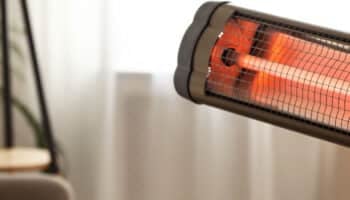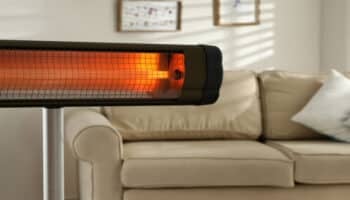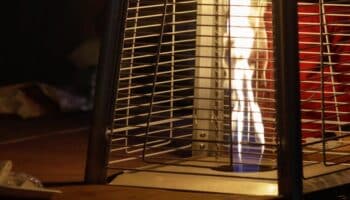Does your infrared heater keep shutting off? There could be something wrong with your power sources. This might be why.
What would be of our lives without infrared heaters? I can’t imagine getting together with my friends in the garden under freezing conditions.
Soirées just wouldn’t be the same.
These artificial heat sources have made our lives easier and solved one of the most annoying problems of outdoor activities. They’re simply wonderful.
Especially when you consider that they’re easy to use, and not awfully expensive.
Having said that, not everything can be peachy. Sometimes, infrared heaters can start causing more problems than they solve, at which point, they can become a great inconvenience.
If you’re reading this, it means yours keeps shutting off randomly, leaving you at the mercy of cold nights. I had this happen to me not too long ago, so I understand how frustrated you are.
Lucky for you, in order to fix my issue, I had to do some research. Which I now want to share with you.
Below, you will find a list with the most common causes behind this occurrence, and the simplest steps you can take to address them. There’s not a single doubt in my mind that, if you follow them religiously, your infrared heater, will stay lit for good.
Sounds good? Let’s go!
Fixing a Malfunctioning Infrared Heater
Most people make the mistake of looking only for internal culprits, while ignoring all the external factors that could be to blame.
You might be tempted to pry your appliance open immediately to find some answers, but please, don’t do that just yet. We will test your internal components, but only as a last resort.
Here are some reasons why your infrared heater might keep shutting off:
- Your power cord is damaged
- Your wall outlet is faulty
- Your thermostat is broken
- The grill is dirty
- Your filter needs cleaning
#1 A Damaged Power Cord
Despite looking thick and sturdy on the outside, you must remember that every power cord is made up of several smaller cables that carry electricity. These won’t break just by looking at them, but damaging them is not too hard either.
In fact, seemingly unimportant bad habits, such as keeping your cord tangled, stored away improperly, or pressed against an object in weird angles, is more than enough to do it in.
This will, of course, only be a problem if you own a portable model. Provided that you own a wall-mounted unit, this likely won’t affect you.
A damaged power cord can be dangerous, since, depending on how badly it’s broken, it could be supplying electricity to your appliance intermittently. This can cause short-circuiting and overheating, both of which are concerning conditions.
Solution: Test a different cable.
I don’t expect you to have a spare power cord just lying around waiting to be tested, but on the off chance that you do, go ahead and use it. This will save you both time, and money, as well as provide you with an immediate answer.
Just make sure it meets the same amperage and voltage requirements as the broken one.
Provided that you don’t have another cable, that’s fine too. You can do a quick Google search on your appliance’s make and model to find the right replacement for cheap.
#2 A Faulty Wall Outlet
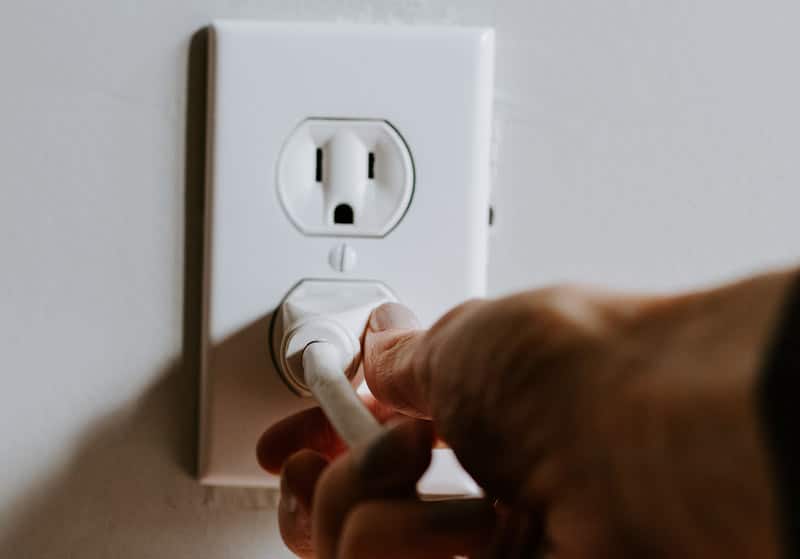
Assuming your power cord is unscathed, we can safely move on to your wall outlet.
These can be a little tricky to diagnose, as the signs of a malfunction are very similar to those of overheating, and short-circuiting.
When this condition is present in your home, your infrared heater will keep shutting off, as its main power source is compromised. And while this may not sound too concerning, let me assure you that it is.
Just as it happens with a damaged power cord, a faulty wall outlet could be supplying electricity to your appliance intermittently, putting it at risk of sustaining permanent damage.
It’s of the utmost importance that you stop using the heater as soon as you suspect this to be the source of the malfunction.
Solution: Depending on your heater’s model, you might need to take different steps.
If your heater is wall-mounted, the outlet it draws power from should be behind your wall, and must be inspected by a certified technician.
On the other hand, provided that your model is portable, all you need to do is relocate the unit, and plug it into another outlet to see if that fixes the problem.
If you own a multimeter, and want a DIY challenge, you can also test the suspicious outlet for continuity with it. This is completely optional, but strongly encouraged, as a faulty outlet could be the first sign of a greater malfunction in your home’s electrical layout.
#3 A Broken Thermostat
Having ruled out your power sources as culprits, let’s check out your thermostat.
In case you’re not familiar with what this component does, let me briefly explain. The thermostat is responsible for both measuring, and regulating the temperature inside your infrared heater.
When it works normally, it should never let your appliance overheat. However, any malfunction can cause it to get inaccurate temperature readings, and prompt the unit to self-deactivate as a safety measure.
If your infrared heater keeps shutting off, there’s a very good chance that this part needs urgent replacing.
Solution: While the following steps are designed to change the thermostat of a box unit, the broad strokes should be the same for most infrared heater versions:
- Carefully unplug the appliance, and let it cool down completely
- Turn the unit around and expose the protective screws at the back
- Undo them, and remove the external metal panel to expose your machine’s guts
- Locate your thermostat, and gain comfortable access to it
- Use a multimeter to test it for continuity
Provided that you determine the part is faulty, you should be able to get a new thermostat from either your nearest hardware store or your manufacturer.
If you’re a visual person like me, and love detailed walkthroughs, there are tons of online videos you can check out and follow along step by step.
#4 Clean the Grill
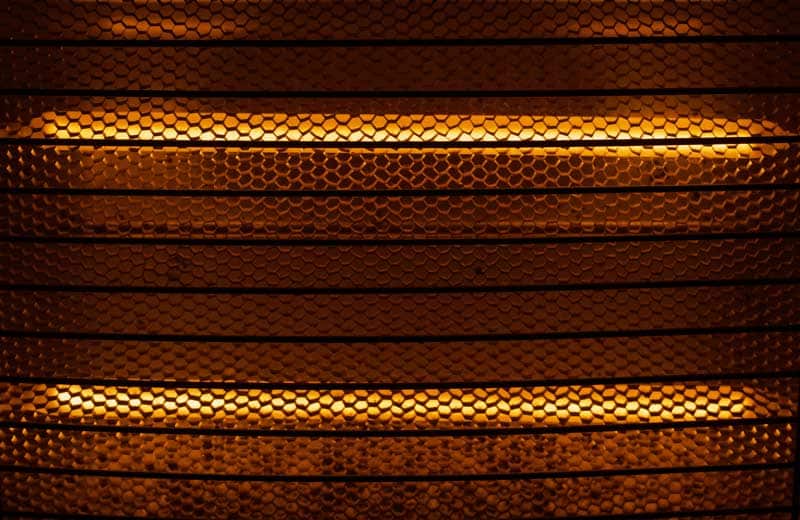
I find this to be one of the things people tend to overlook the most. And it makes total sense.
We’ve discussed all the things that could be wrong with your appliance. But what about the things you might be doing wrong as the user?
The best way to guarantee that an appliance will function normally and last as long as it’s supposed to, is by giving it proper maintenance. You should never let your infrared heater’s components become dirty or obstructed by dirt and debris.
The grill in your heater is there to protect you from potential burns. And while it’s great at doing that, it can also prevent the heat from escaping the appliance if dirt builds around it.
This won’t happen in a month or two, but if you fail to clean your unit regularly, the excessive heat getting caught inside the heater could prompt it to shut off randomly in order to protect it from overheating.
Solution: Clean your grill often.
Wait for the appliance to cool down completely and use a rag to remove any dirt or debris. If you find any kind of stubborn residue, you can use a little vinegar to soften it, and scrub it off.
#5 Clean the Filter
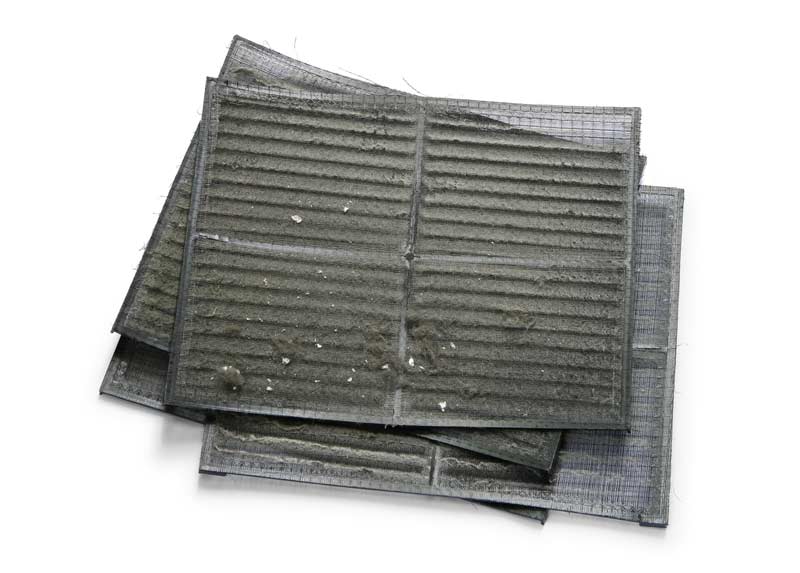
Lastly, let’s check out your filter.
While your infrared heater does not pull in air like an air conditioner or a dehumidifier would, it’s still always in contact with dirt and other unwanted particles.
The filter inside your appliance is designed to catch said particles, and keep them from reaching its internal components. Failing to clean or replace them often, can cause your heater to overheat, and shut off automatically.
If you let your appliance overheat regularly, it will sustain permanent damage over time, and it might stop working altogether.
Provided that your infrared heater keeps shutting off, there’s a good chance that your filter needs to be replaced or cleaned.
Solution: Let your heater cool down and then proceed to remove the filter carefully.
Wash it with dish soap under running water and let it dry completely. Once you have done that, vacuum off any remaining debris from it.
This will only work for filters that are newer than six months, though. If yours is older than that, no amount of cleaning will make it work normally again, and you’ll need to buy a new one.
I know, bummer.
When Should You Call a Pro?
The answer to this question will depend greatly on the status of your warranty and whether the solutions above worked out for you.
If you are still under coverage and don’t mind waiting a couple of days or weeks for your manufacturer to send a technician to your home, by all means, go ahead and give them a call.
Unless specified otherwise, they should take care of the repairs for free.
Provided that your warranty has expired, you’ll have to weigh the cost of repairs vs the cost of getting a new model. The replacement parts to fix your infrared heater are not awfully expensive, but the cost of labor to have them installed and configured, can be.
As a general rule, paying for repairs that are equal to 50% or more of the price of a new model with similar features, is a bad investment.
Conclusion
To have your infrared heater keep shutting off can be a nightmare. Especially during freezing nights.
Not only are you stuck with a malfunctioning heater, but also in the uncomfortable position of having to figure out what the problem is, and finding a solution for it.
Luckily, as I hope you’ve learned in this piece, addressing most of the causes behind this situation is fairly simple and not very time-consuming. More often than not, double-checking your power sources and keeping your grill clean, is all you need to do to keep your heater in tip-top condition.
Thank you for reading. If you found this article helpful, why not become an expert in the subject through our other incredible resources below?
Stay warm and safe!





